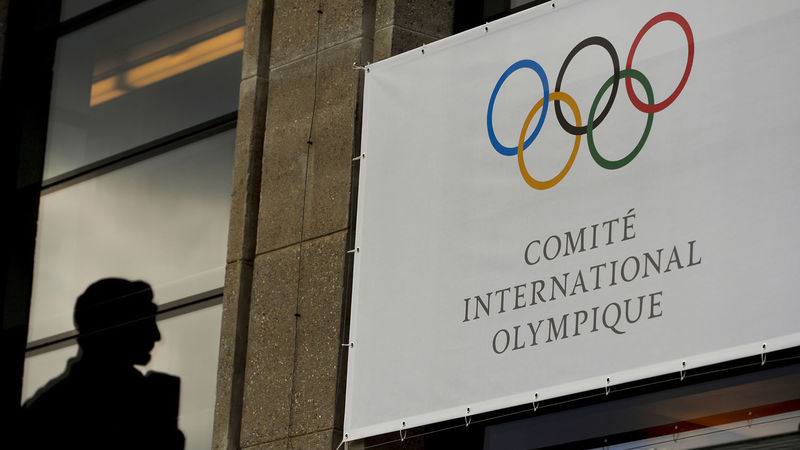
Why do major sporting events partner with those who harm people and the planet? The Africa Cup of Nations is partnered with Total Energies, a company notorious for human rights violations on the African continent, and the last FIFA World Cup was held in Qatar, a country with well-documented human rights abuses.
The latest example of this unwelcome trend is the Olympics' partnership with Toyota: The Olympics maintained a sponsorship deal with the car manufacturer after promising to be “the most sustainable Games in history,” but the deal is likely to end after this year's spectacle.
Organizers have pledged to halve the Games' carbon dioxide emissions compared with past Olympics, meaning emissions will be kept below 1.75 million tonnes, up from 3.5 million tonnes in previous Games, according to the organizing committee.
These efforts are commendable, but partners must also be on the same page. Measures taken by the organizing committee include using existing infrastructure, expanding renewable energy and recycling, as well as plans to promote cycling, plant-based food and reducing single-use plastics.
However, the organizers, along with Toyota, released the following statement:
“Toyota, the Worldwide Mobility Partner of the International Olympic Committee (IOC) and the International Paralympic Committee (IPC), has delivered the first of the official vehicles that will support the Paris 2024 Olympic and Paralympic Games.”
This has outraged current and former Olympians, with several saying in a statement:
“Instead of phasing out internal combustion engine vehicles in accordance with established climate science, Toyota is expanding production, with plans to put more than 11 million on the road this year. This means Toyota's emissions are huge: the company's self-reported emissions of 575 million tonnes of carbon dioxide equivalent are already much higher than France's, and growing.
“Toyota continues to lobby governments to postpone, relax or roll back key climate regulations. An InfluenceMap report published in May this year found that Toyota is the worst company in the auto industry on this score, holding back progress everywhere from the US to Australia. Less than 1% of Toyota's car sales last year were electric, while other major automakers such as BMW already account for 15%.”
The statement also said that less than half of Toyota's vehicles are fully electric, with most of the rest powered by gasoline.
This would mean more emissions for the Olympics, making the goal of halving emissions extremely difficult to achieve. There is also the issue of public perception, which undermines the electric vehicle message: “EVs are 100% fossil fuel hybrids.”
It appears that sportswashing is happening. Sportswashing refers to the use of sporting events by individuals, governments, corporations or other groups to enhance or promote the reputation of an individual or group, especially when controversy or scandal is occurring.
Athletes have welcomed reports that Toyota is ending its partnership with the Olympics and hope it will also cut ties with the Paralympic Organising Committee.
The overall hope is that global sporting events will end all partnerships with companies that have a negative impact on the climate.
“In 2024, a huge polluter who lobbies against the public interest and the athletes' fundamental interests for a safe climate should not be given the privilege of being a partner of the Olympic and Paralympic Games. This must be the last year that the world's biggest polluters are allowed anywhere near the Olympic Games,” the athletes said.
It's important to distinguish between climate and sporting events: heat and pollution are both challenging aspects for athletes.
Now is a wise time to remember that the weather will affect these events: both the Qatar World Cup and the African Nations have had to be moved to periods when the weather is milder.
For the 2020 Olympics, the marathon and race walking events were moved to other venues because participants could not tolerate the high temperatures.
“Not only was the Olympic women's soccer final rescheduled, but for the first time in Olympic history, the stadium was also changed due to extreme heat. Additionally, an archery player fainted and three tennis players withdrew mid-match due to heat stroke,” the athletes said.
“If we don't address climate change, more and more events will have to be rescheduled or moved, and ultimately it will be the athletes who suffer. Partnering with those guilty of climate destruction doesn't help anyone and is condoning their behaviour. We need to take a stand.”
A statement from former and current players summed it up this way:
“With Toyota's eight-year contract with the IOC coming to an end after the Paris Games, it will be time for Toyota to hand over the baton to a clean Olympic mobility sponsor.”
The Olympians who wrote letters to Olympic organizers are:
Marcelien Bos de Koning – Dutch Olympian sailor
Laura Baldwin – British Olympian sailor
Dotsie Bausch – American Olympian cyclist
Jenny Casson – Canadian Olympian rower
Francesca “Frankie” Krapčić – Italian Olympian sailor
Rhydian Cowley – Australian Olympian race walker
Melissa Umana Paredes – Canadian Olympian beach volleyball player
Philippe Marquis – Canadian Olympian freestyle skier
Eliza McCartney – New Zealand Olympian pole vaulter
Etienne Stott – British Olympian slalom canoeist

